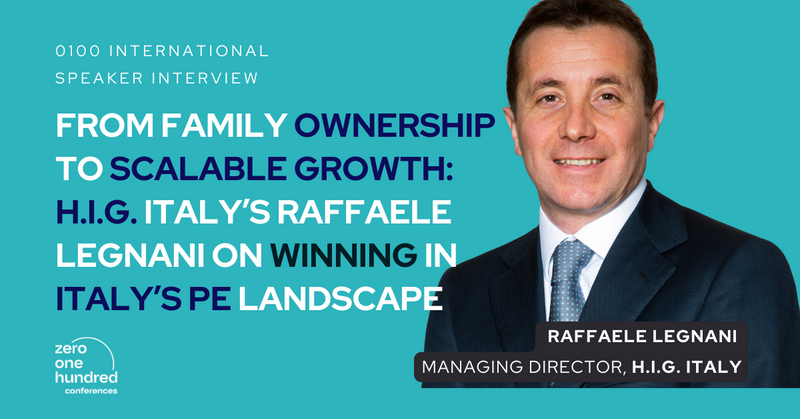Raffaele Legnani, who heads H.I.G. Italy and brings three decades of private equity expertise, has seen the industry evolve through various economic shifts. Here, he discusses the challenges and prospects for Italy’s mid-market firms, the changing mindset of family-owned companies toward private equity partnerships, and the strategies H.I.G. employs—ranging from consolidation to global expansion and digital innovation—to generate long-term growth.

You’ve worked through many market cycles. How does today’s interest rate scenario compare?
In Europe, interest rates of around 2% are healthy and sustainable. What we experienced with near-zero rates was an exception—ultimately neither normal nor constructive for long-term market dynamics. More balanced rates create discipline in capital allocation and encourage responsible growth.
At the moment, good projects still find financing. Commercial banks continue to support companies in the lower mid-market, and private debt funds have become increasingly competitive, lowering their costs significantly in recent years.
The key difference now compared to past cycles is the very high levels of sovereign debt across large economies—not just in Italy and Japan, but also in France, the US, and the UK. This represents a significant macro risk that introduces uncertainty.
How does this uncertainty affect your work as an investor?
Uncertainty is always the hardest element to manage. Elevated public debt constrains government spending, raises default risks, and undermines long-term visibility—all of which are fundamental for financial investors.
With “easy exits” harder to come by, what is your approach to value creation?
Exits have never been the cornerstone of our returns. Our focus is on driving value through strategic and operational improvements.
We concentrate on three main levers:
Buy-and-build strategies in fragmented industries, where we’ve achieved strong results in Italy.
Internationalization, helping companies expand into new markets.
Digital transformation, which enhances efficiency, scale, and profitability.
What exit paths are available in Italy today?
The traditional ones remain: trade sales, IPOs, and secondary sales. Solid businesses with attractive growth stories continue to find buyers.
The current slowdown in exits is largely due to valuation gaps, not a lack of investor appetite. When quality assets are offered at fair prices, demand and capital are clearly there.
And continuation funds?
They can be useful in certain cases where an asset requires more time to realize its full potential. For us, though, they remain the exception rather than the rule.
Are Italian family businesses more open to private equity partnerships?
Yes, significantly so. There’s a growing recognition that the old “small is beautiful” mindset doesn’t work in a global market.
To compete internationally, companies need critical mass—to finance investments, attract talent, and diversify across geographies, products, and technologies.
We see more entrepreneurs willing to engage with private equity to accelerate growth and reinforce governance. Often, they sell a majority stake but keep a meaningful minority. This alignment ensures continuity in leadership and strategy, allows families to diversify their wealth, and provides a smoother succession path.
How do you handle founder transitions when leadership changes hands?
We usually adopt a gradual approach. A new CEO or General Manager works side by side with the founder for one or two years. After that, the founder often becomes Chairman, continuing to provide strategic guidance and relationships, while the new CEO manages day-to-day operations.
In Italy, the connection between founders and their businesses is deeply personal, often compared to a parent-child bond. Building trust, ensuring cultural fit, and maintaining close interaction are essential for a smooth transition.
Looking forward, how do you balance resilience with growth?
We remain optimistic yet disciplined. Macro risks—such as high public debt and protectionist trade policies—are real. But Italy’s mid-market continues to offer compelling opportunities for private equity investors.
Our approach is proactive: selective investments, robust strategies, rigorous execution, and a relentless focus on operational excellence. We believe that with the right discipline, resilience and growth can go hand in hand.

